Bristol’s new police chief’s vision for a ‘determinedly anti-racist and anti-sexist’ police force
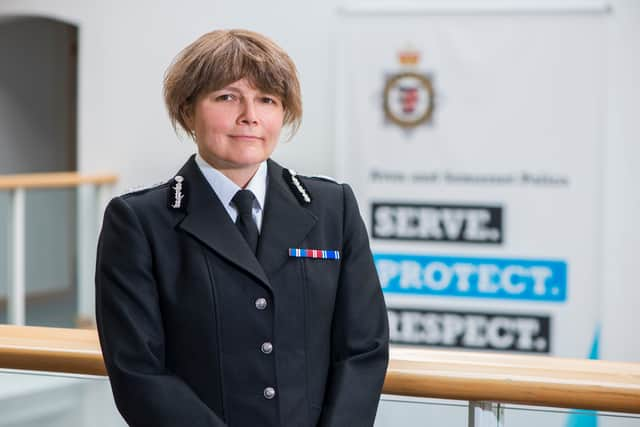

Bristol’s new chief constable has a vision she terms ‘the person born today’.
What will their life be like in and around the city when they come of age, 18 years from now?
Advertisement
Hide AdAdvertisement
Hide AdThen, almost two decades after the Sarah Everard case rocked the nation, will the ‘girl born today’ feel safe walking home in the dark?
Will ‘the boy born today’ be given the support he needs to ditch the blade in his pocket after knife crime soared among young men in 2021?
The next generation and how policing will affect it is high in the mind of Sarah Crew as she steps into the role of Avon and Somerset Police’s first woman chief constable.
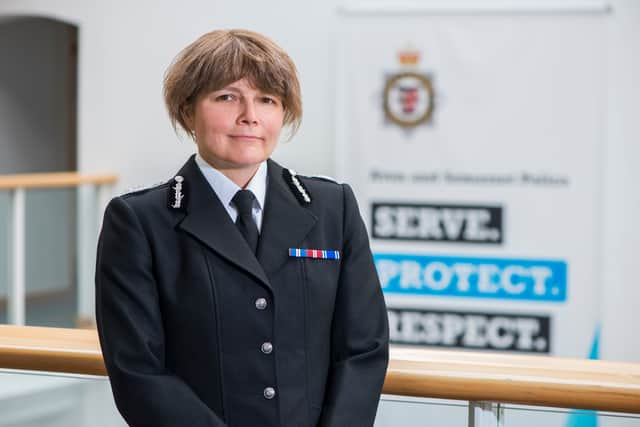

A ‘local girl’ from South Gloucestershire and schooled in Bristol, Chf Con Crew has 27 years of policing under her belt, all of which has been spent in the Avon and Somerset region.
Advertisement
Hide AdAdvertisement
Hide AdThe main bulk of her wide-ranging career has been spent as a detective, specialising in rape and serious sexual offences.
As pressure builds on police forces across the country to do more to tackle violence against women and girls, this is crucial experience she hopes to utilise in a role she deems such a ‘huge privilege and honour’.
It’s just one of many building blocks as Chf Con Crew and her colleagues work to ensure the force is ‘determinedly anti-sexist and anti-racist’ for the future.
“It’s a big responsibility,” she said. “Not only when it comes to supporting our communities, which always come first, but in supporting the brilliant men and women in policing.
Advertisement
Hide AdAdvertisement
Hide Ad“It’s not an easy vocation to follow. It places a lot of restrictions on your life, of course, but also exposes you to quite a lot of trauma.
“The fact that people come into work for the good of others, despite that fact, is very humbling.”
Sarah Everard: Is enough being done for women’s safety in Bristol?
The rape, kidnap and murder of 33-year-old marketing executive Sarah Everard by Metropolitan Police officer Wayne Couzens sent shockwaves from London into Bristol earlier this year, sparking demands for transparency on what was being done in the region to keep women from harm.
Chf Con Crew said she believed that ‘while great work was ongoing’ by Avon and Somerset Police, ‘more can be done, but it’s a societal and institutional effort as well’.
Advertisement
Hide AdAdvertisement
Hide Ad“Already, before the Sarah Everard case, we were reviewing our violence against women strategy which has many different strands,” she added.
“Clearly, criminal justice is the key one for the police.
“But public safety is another area where we can influence others, as well as looking at our own behaviour.
“The police, as figures of authority, can also serve as role models, and that is something we’re looking at internally.
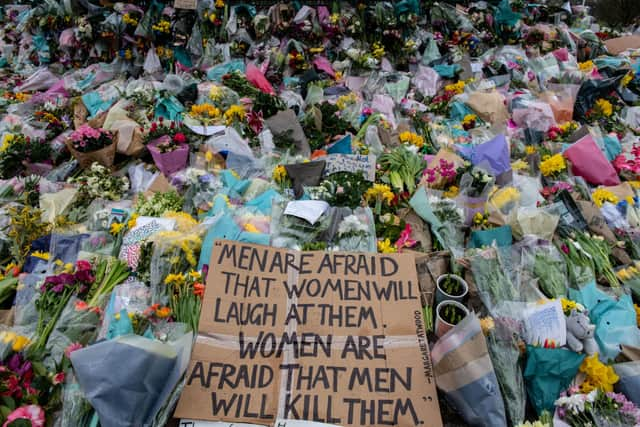

“Shortly after the Sarah Everard case happened, the Police and Crime Commissioner and I wrote to a range of different stakeholders across Bristol, whether that was elected politicians or those involved in the running of the night-time economy.
Advertisement
Hide AdAdvertisement
Hide Ad“We asked if this was an opportunity to come together as a summit to arrange shared activity that would make a difference.
“We had a really positive response to that request and set up a small steering group to start planning an event where we can take this forward, which will hopefully happen in the spring.
“We want to make sure that the ‘girl born today’ feels safe, is confident enough to report things and treated with respect and dignity by the police if she does so.”
10-year drugs plan: ‘I support the emphasis on treatment’
This week, Boris Johnson announced a 10-year drugs strategy with an extra £300m to be given to forces to combat county lines gangs.
Advertisement
Hide AdAdvertisement
Hide AdDrug crime is a problem throughout Bristol, but Chf Con Crew said she was ‘hopeful for the future’ in light of the funding boost.
She said: “We need to focus really hard on those who supply for gain in our communities - especially when they target vulnerable people to sell drugs, which is a feature of county lines.
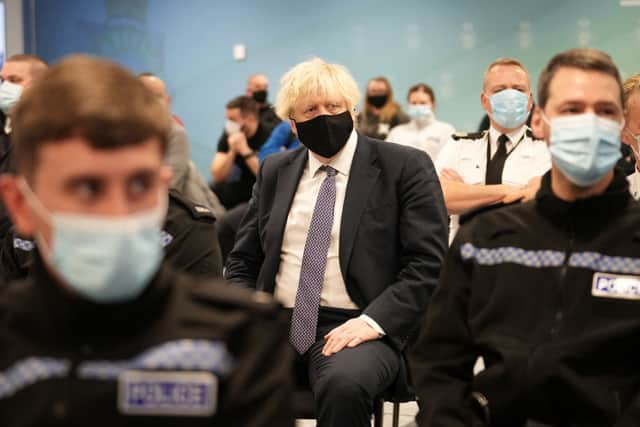

“These are business models for suppliers and they’re easy and quick to set up, doing a lot of damage in a short time.
“Do I think we’re doing a good job when it comes to tackling supply? Yes, I do.
Advertisement
Hide AdAdvertisement
Hide Ad“I think what’s happened in policing over the last 12-18 months is much greater co-ordination across boundaries.
“We’re working with colleagues from the Metropolitan Police on their patch, as well as with colleagues from West Midlands Police where many of the importers of the county lines problems stem from.
“It’s something you can’t rest back on your laurels with, you need to be on it all the time.
“What we have seen from this government is re-investment in numbers, which means about 450 extra police officers across Avon and Somerset over a three-year period.
Advertisement
Hide AdAdvertisement
Hide Ad“They’re not all there yet and need to be trained and brought up to speed, but it means we can reinforce our responsive capabilities and keep pressure on suppliers and organised crime groups.”
“I really support the emphasis on treatment,” Chef Con Crew added.
“We’ve got a fantastic history of working with educational sectors, treatment programmes and housing to help people who say might find themselves in possession of cannabis for the first time or be in quite a serious place in their addiction or criminal lifestyle.
“Supply we try to tackle through enforcement, but we recognise you need to you need to deal with demand as well, working with partners to reduce it along with some of the utter hopelessness that people who want to get out of that lifestyle might feel.”
2020: A year that changed Avon and Somerset Police
Advertisement
Hide AdAdvertisement
Hide AdAs frustrated demonstrators toppled the statue of a slave trader during the Black Lives Matter protests in Bristol in June 2020, Avon and Somerset Police underwent a revolution of its own.
The exceptional circumstances of a huge demonstration at the height of coronavirus restrictions meant officers were forced to rethink policing protests, while many working from home had to grapple with new technology.
The police chose not to intervene when the statue was of Edward Colston was toppled and dumped into the harbour, a decision that Chf Con Crew ‘having had a chance to review the situation’ is happy with and supportive of.
She said: “They were presented with a dynamic situation, they balanced all the risks and threats and balanced them well.
Advertisement
Hide AdAdvertisement
Hide Ad“Having been a commander during public order situations, I’m well aware of these balancing factors - but these were exceptional circumstances.
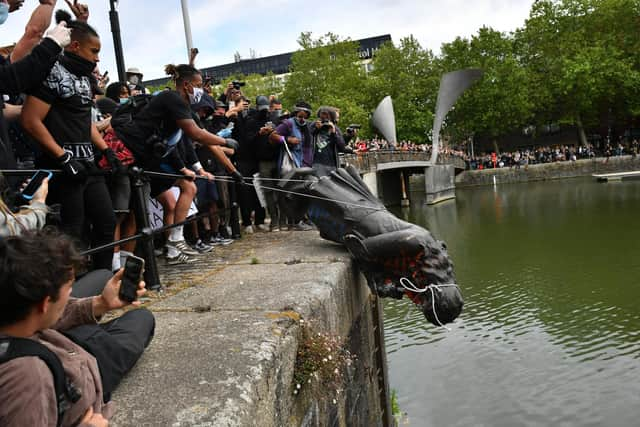

“Policing of a protest is always challenging, but you don’t normally have to factor in public health.
“Now that the restrictions don’t apply, I think this is something we can learn from and use to reset relationships.
“We de-brief after every protest and are quite tough on ourselves in terms of what we could have done differently.
Advertisement
Hide AdAdvertisement
Hide Ad“It’s important we are open to scrutiny and I’m keen for us to be transparent on the thoughts, evidence and science that goes into decisions officers have to make during a protest.
“We have a proud history of facilitating lawful and peaceful protest, particularly in Bristol - and we want to get back to that, working with organisers to ensure the absolute right to ensemble and convey views is protected.”
Sparked by the death of George Floyd, a black man who was killed by a white police officer in Minneapolis, America that May, the Black Lives Matter movement brought police brutality to the fore.
Chf Con Crew added: “One thing that is so important to me is the idea of policing by consent.
Advertisement
Hide AdAdvertisement
Hide Ad“We need to make a space for black communities to tell us how it feels to be policed by us and how we can gain that consent along with their trust.
“I’m really keen to move forward in being a brave, empathetic and anti-racist organisation, both in terms of how we work internally and within communities.
‘Is it staff or stations that do the work?’
Following the ongoing closure of many police stations in and around Bristol, Chf Con Crew was asked if the move should be reversed.
Since 2010, police stations in Staple Hill, Southmead, Redland and Filton have all closed.
Advertisement
Hide AdAdvertisement
Hide AdChf Con Crew told BristolWorld: “I think you always have to weigh up who does policing - is it the staff or the stations?
“Police stations and the presence and confidence they provide do have some value.
“That being said, they are very expensive to run if there's nobody in them.
“We've all been through the pandemic and it's had a fundamental effect on the way we work.
Advertisement
Hide AdAdvertisement
Hide Ad“We were very fortunate in Avon and Somerset in that we did a programme to get all of our staff mobile and agile with laptops and phones before the pandemic.
“But it meant that when the pandemic came, overnight we switched into a much more remote way of working.
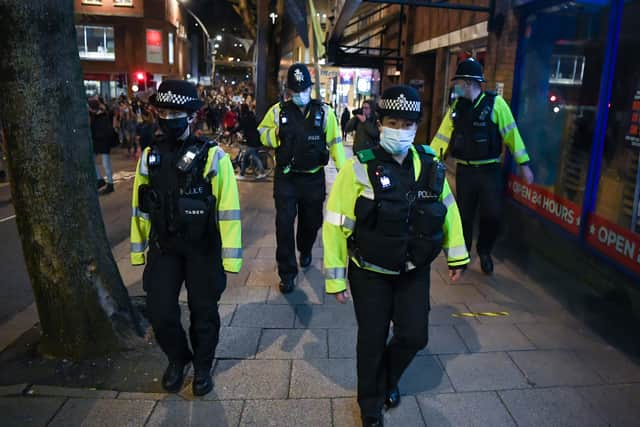

“We developed and embraced the technology and adapted to it in perhaps a way we wouldn’t have before.”
Chf Con Crew, who was interviewed over Zoom, said: “I’m at a police station but this technology means I can be more visible. Later I have meetings with colleagues and government ministers, and that will all be carried out using this technology.
Advertisement
Hide AdAdvertisement
Hide Ad“There is a role for police stations, but its also a case of ‘let’s enable people to be where they need to be at the right place or on the right platform at the right time to respond to the public’.
“There may be some new stations or very different looking stations, such as police hubs, popping up in future.
“That's a process we're looking at as we reset ourselves as an organisation.”
